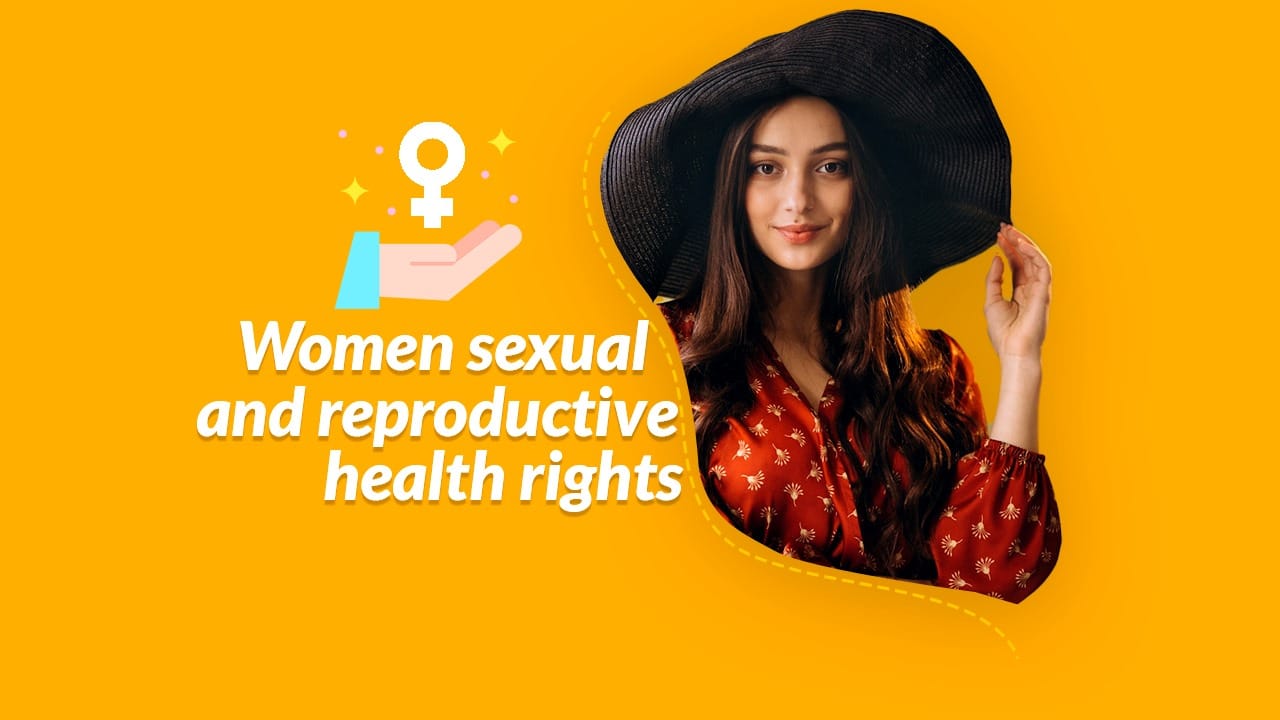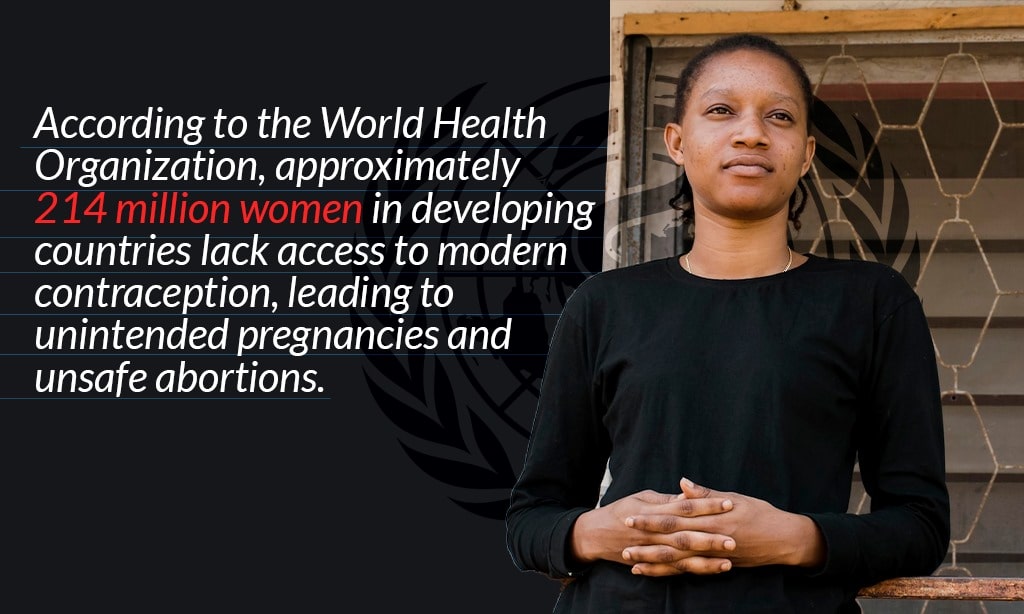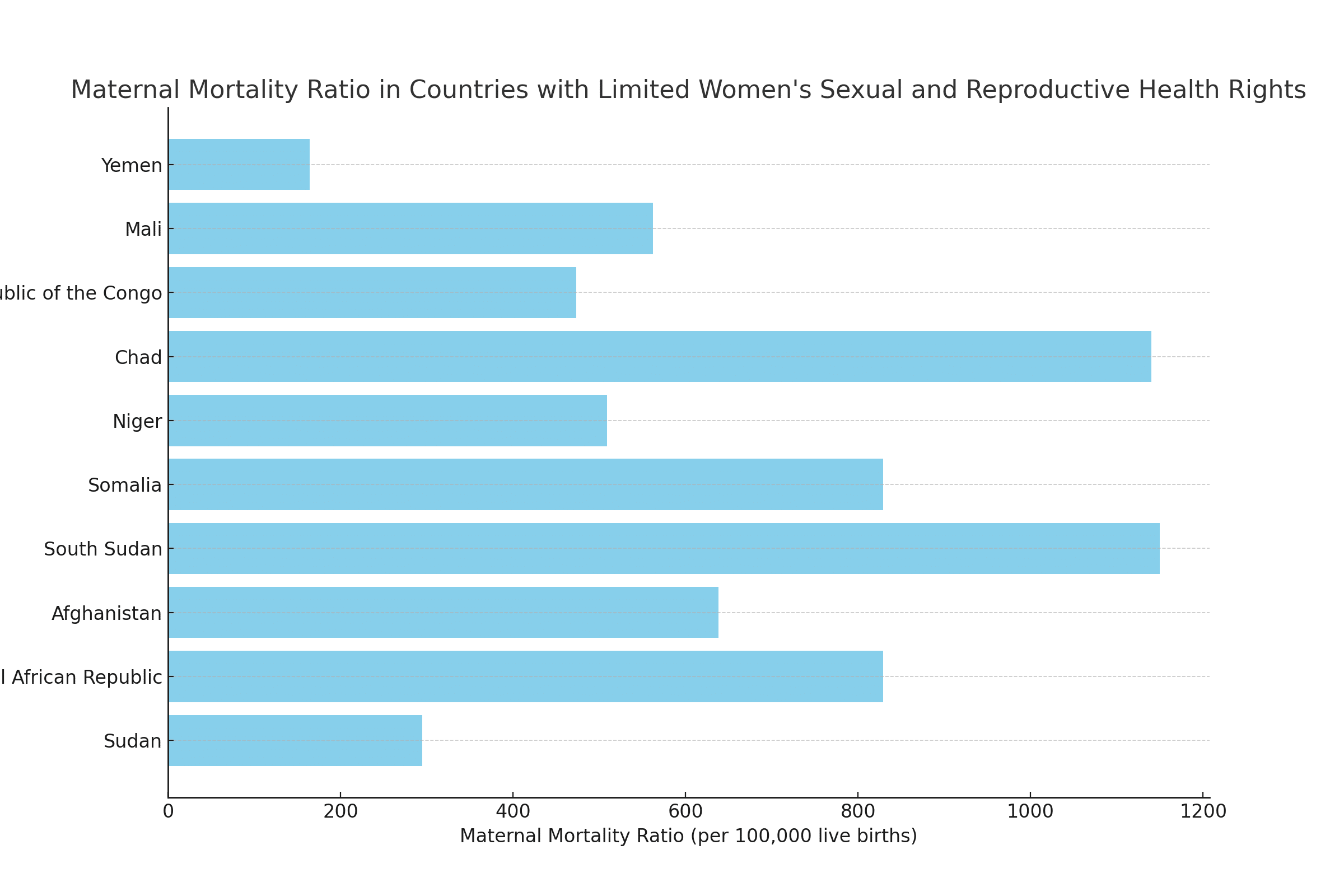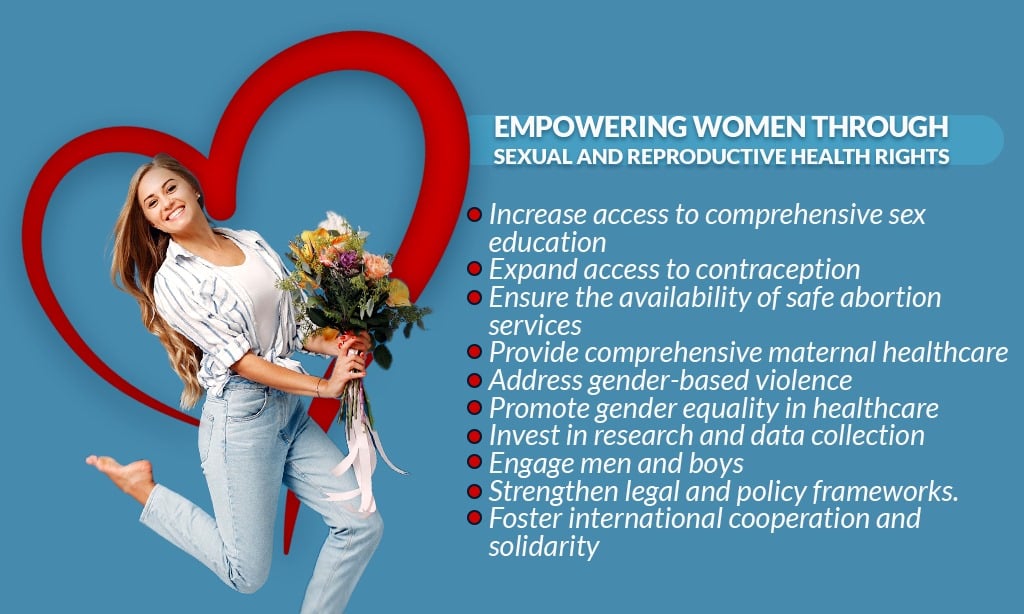As we approach International Women’s Day 2024, it is crucial to reflect on the progress made in advancing women’s rights and the challenges that still lie ahead. One area that demands urgent attention is the ongoing stigma and barriers surrounding women’s sexual and reproductive health rights. Despite the efforts of activists, healthcare providers, and policymakers, women worldwide continue to face significant obstacles in accessing essential healthcare services and education. On International Women’s Day 2024, we must renew our commitment to breaking the stigma and empowering women to take control of their sexual and reproductive health.
The Global Landscape of Women Sexual and Reproductive Health Rights
The state of women’s sexual and reproductive health rights varies greatly across the globe. In some countries, women have access to comprehensive healthcare services, including contraception, safe abortion, and maternal care. However, in many parts of the world, women’s health needs are often neglected or actively suppressed. According to the World Health Organization, approximately 214 million women in developing countries lack access to modern contraception, leading to unintended pregnancies and unsafe abortions. Additionally, maternal mortality remains a significant concern, with an estimated 295,000 women dying from pregnancy-related complications in 2017, mostly in low- and middle-income countries.
The Consequences of Stigma and Lack of Access
The stigma surrounding women’s sexual and reproductive health has far-reaching consequences. When women are unable to access the care they need, they face an increased risk of unintended pregnancies, sexually transmitted infections, and maternal health complications. The lack of comprehensive sex education leaves young people ill-equipped to make informed decisions about their sexual health, leading to higher rates of teenage pregnancies and STIs. Moreover, the stigma and shame associated with discussing sexual and reproductive health can prevent women from seeking help when they need it most, whether it be for contraception, abortion services, or prenatal care.
The Impact on Women’s Lives
The consequences of inadequate sexual and reproductive healthcare extend beyond physical health. When women are denied control over their bodies and reproductive choices, it can have a profound impact on their educational and economic prospects. Unintended pregnancies can force girls to drop out of school, limiting their future opportunities and perpetuating cycles of poverty.
The burden of caring for large families can also hinder women’s ability to participate in the workforce and achieve financial independence. By empowering women to make informed decisions about their sexual and reproductive health, we can unlock their full potential and promote gender equality.
Countries where women don’t have sexual and Reproductive Health Rights
Here are the top 10 countries where women’s sexual and reproductive health rights are most severely limited, based on various reports and indices:
- Yemen: Yemen ranks as one of the worst countries for women’s rights, with high rates of child marriage, limited access to contraception, and a maternal mortality ratio of 164 deaths per 100,000 live births, according to UNICEF.
- Mali: According to the World Bank, only 18% of women in Mali use modern contraception, and the nation has a high maternal mortality ratio of 562 deaths per 100,000 live births.
- Democratic Republic of the Congo: Women in the DRC face high rates of sexual violence, limited access to healthcare, and a maternal mortality ratio of 473 deaths per 100,000 live births, according to the World Health Organization.
- Chad: According to UNICEF, Chad has one of the highest rates of child marriage in the world, with 67% of girls marrying before they turn 18 and a maternal mortality rate of 1,140 deaths per 100,000 live births.
- Niger: Niger has the highest fertility rate in the world, with an average of 7.6 children per woman, and a maternal mortality ratio of 509 deaths per 100,000 live births, according to the World Bank.
- Somalia: According to UNICEF, maternal mortality in Somalia is 829 deaths per 100,000 live births, there is a high rate of female genital mutilation, and access to healthcare is extremely limited.
- South Sudan: In South Sudan, only 4% of women use modern contraception, and the country has a maternal mortality ratio of 1,150 deaths per 100,000 live births, according to the World Health Organization.
- Afghanistan: According to the World Bank, women in Afghanistan have significant difficulty accessing healthcare, with a maternal mortality ratio of 638 deaths per 100,000 live births.
- Central African Republic: The Central African Republic has a high maternal mortality ratio of 829 deaths per 100,000 live births and limited access to sexual and reproductive healthcare, according to the World Health Organization.
- Sudan: According to the World Bank, only 16% of women in Sudan use modern contraception, and the country has a maternal mortality rate of 295 deaths per 100,000 live births.
These countries highlight the urgent need for action to promote women’s sexual and reproductive health rights and ensure access to essential healthcare services. International Women’s Day 2024 serves as a call to action to address these disparities and work towards a world where every woman can exercise her fundamental rights.
Addressing the Challenges
Breaking the stigma and improving access to sexual and reproductive healthcare requires a multi-faceted approach. Governments must prioritize women’s health in their policies and budgets, ensuring that essential services are affordable, accessible, and of high quality. This includes implementing comprehensive sex education programs in schools, expanding access to contraception, and ensuring the availability of safe abortion services. Healthcare providers must also be trained to provide non-judgmental and culturally sensitive care, creating a welcoming environment for women to discuss their health concerns.
The Role of Education
Education plays a critical role in breaking the stigma and empowering women to make informed decisions about their sexual and reproductive health. Comprehensive sex education programs that provide accurate, age-appropriate information can help young people understand their bodies, relationships, and sexual health. By fostering open and honest conversations about these topics, we can challenge the myths and misconceptions that perpetuate stigma. Additionally, educating men and boys about women’s health issues and the importance of respecting women’s bodily autonomy can help create a more supportive and equal society.
Advocating for Change
Achieving progress in women’s sexual and reproductive health rights requires sustained advocacy and activism. Women’s rights organizations, healthcare providers, and civil society must continue to push for policy changes and hold governments accountable for ensuring access to quality healthcare services. This includes advocating for the decriminalization of abortion, increasing funding for family planning programs, and promoting gender equality in all aspects of society. By raising our voices and demanding change, we can create a world where every woman has the right to make decisions about her own body and future.
The Power of Solidarity
International Women’s Day 2024 serves as a reminder of the power of solidarity in advancing women’s rights. By coming together and supporting each other, women can break down the barriers that hinder their access to sexual and reproductive healthcare. This includes sharing experiences, providing support and resources, and advocating for change collectively. Through solidarity and collaboration, we can create a world where women’s health and autonomy are valued and respected.
Empowering Women Through Sexual and Reproductive Health Rights: Key Suggestions
To empower women through sexual and reproductive health rights, here are 10 key suggestions, supported by current statistical data:
- Increase access to comprehensive sex education: Comprehensive sex education is crucial for empowering women to make informed decisions about their sexual and reproductive health. However, only 34% of young people worldwide have comprehensive knowledge about HIV prevention, according to UNAIDS.
- Expand access to contraception: Access to contraception is essential for women to plan their families and prevent unintended pregnancies. However, according to the Guttmacher Institute, 218 million women in low- and middle-income countries have unmet needs for modern contraception.
- Ensure the availability of safe abortion services: Unsafe abortions account for 4.7–13.2% of maternal deaths globally, according to the World Health Organization. Ensuring access to safe abortion services is crucial for reducing maternal mortality and protecting women’s health.
- Provide comprehensive maternal healthcare: According to the World Health Organization, 810 women die every day from pregnancy-related complications, mostly in developing nations, which is a serious concern for maternal mortality.
- Address gender-based violence: One in three women worldwide has experienced physical or sexual violence, often at the hands of an intimate partner, according to the World Health Organization. Addressing gender-based violence is essential for promoting women’s sexual and reproductive health rights.
- Promote gender equality in healthcare: Women often face discrimination and stigma when accessing healthcare services. Promoting gender equality in healthcare is crucial for ensuring that women receive the care they need without fear of judgment or mistreatment.
- Invest in research and data collection: Accurate data on women’s sexual and reproductive health is essential for developing effective policies and programs. Investing in research and data collection can help identify gaps and prioritize interventions.
- Engage men and boys: Engaging men and boys in promoting women’s sexual and reproductive health rights is essential for creating a supportive and equal society. This includes educating men about women’s health issues and challenging harmful gender norms.
- Strengthen legal and policy frameworks: Strengthening legal and policy frameworks is crucial for protecting women’s sexual and reproductive health rights. This includes advocating for the decriminalization of abortion, increasing funding for family planning programs, and promoting gender equality in all aspects of society.
- Foster international cooperation and solidarity: Achieving progress in women’s sexual and reproductive health rights requires international cooperation and solidarity. This includes sharing best practices, providing financial and technical support, and holding governments accountable for ensuring access to quality healthcare services.
By implementing these suggestions and working together, we can empower women to take control of their sexual and reproductive health and create a more just and equitable world. International Women’s Day 2024 serves as a reminder of the urgent need to address these issues and the power of collective action to achieve change.
Looking to the Future
As we look to the future, it is essential to recognize that the fight for women’s sexual and reproductive health rights is ongoing. While progress has been made in recent years, there is still much work to be done. We must continue to push for policy changes, challenge harmful social norms, and empower women to take control of their health. By investing in women’s sexual and reproductive health, we can unlock their full potential and create a more just and equitable world for all.
Conclusion
This International Women’s Day 2024, let us reaffirm our commitment to breaking the stigma surrounding women’s sexual and reproductive health rights. By ensuring access to quality healthcare and education, we can empower women to make informed decisions about their bodies and lives. It is time to create a world where every woman has the right to access the care and support she needs to thrive.
Together, we can build a future where women’s health and autonomy are valued, respected, and upheld. Let International Women’s Day 2024 be a catalyst for change, inspiring us to take action and make a difference in the lives of women everywhere.









































